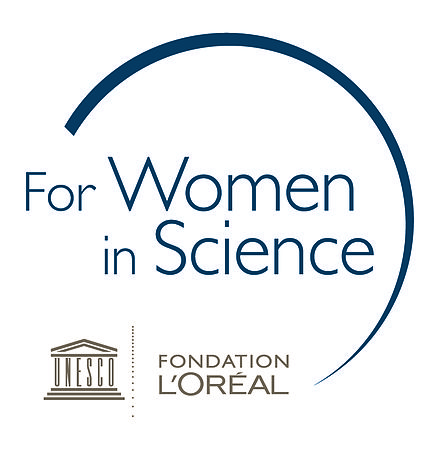L’Oréal-UNESCO For Women in Science International Award#
About the award#
The L’Oréal-UNESCO For Women in Science International Award , created in 1998, aim to improve the position of women in science by recognizing outstanding women researchers who have contributed to scientific progress. The awards are a result of a partnership between the French cosmetics company L'Oréal and the United Nations Educational, Scientific and Cultural Organization (UNESCO) and carry a grant of $100,000 USD for each laureate. This award is also known as the L'Oréal-Helena Rubinstein Women in Science Awards.
, created in 1998, aim to improve the position of women in science by recognizing outstanding women researchers who have contributed to scientific progress. The awards are a result of a partnership between the French cosmetics company L'Oréal and the United Nations Educational, Scientific and Cultural Organization (UNESCO) and carry a grant of $100,000 USD for each laureate. This award is also known as the L'Oréal-Helena Rubinstein Women in Science Awards.
Each year an international jury awards five laureates, selecting one from each of the following regions:
- Africa and the Arab States
- Asia and the Pacific
- Europe
- Latin America and the Caribbean
- North America (since 2000)
Eligibility requirements alternate every other year based on scientific discipline with laureates in life sciences recognized in even years and laureates in physical sciences, mathematics and computer science recognized in odd years (since 2003).
Academia Europaea recipients of the L'Oréal-UNESCO For Women in Science Awards#
- 2024 Geneviève Almouzni, "for her seminal contributions to understanding how DNA is packaged with proteins inside the cell nucleus"
- 2023 Frances Kirwan, "for her exceptional work in pure mathematics combining geometry and algebra in order to develop techniques to understand the classification of geometric objects"
- 2022 Katalin Karikó, "for her ground-breaking development of a non-inflammatory mRNA, as a potent vaccine to prevent viral and parasitic infections"
- 2022 Ángela Nieto, "for her fundamental discoveries in embryonic development, which have paved the way for understanding how cancer extends to other organs and forms metastases, the secondary tumours that cause more than 90% of cancer-related deaths"
- 2021 Françoise Combes, "for her outstanding legacy in astrophysics which ranges from the discovery of molecules in the interstellar space to supercomputer simulations of galaxy formation"
- 2020 Edith Heard, "for her fundamental discoveries concerning the mechanisms governing epigenetic processes, which allow mammals to regulate proper gene expression and are essential for life"
- 2019 Claire Voisin, "for her outstanding work in Algebraic Geometry"
- 2019 Ingrid Daubechies, "for her outstanding contribution to digital images and signal processing, providing common and versatile algorithms for data compression"
- 2017 Nicola Spaldin, "for reinventing magnetic materials for next-generation Material Engineering devices"
- 2015 Carol Robinson, "for her groundbreaking work in macromolecular mass spectrometry and pioneering gas phase structural biology by probing the structure and reactivity of single proteins and protein complexes, including membrane proteins"
- 2012 Francis Ashcroft, "for advancing our understanding of insulin secretion and of neonatal diabetes"
- 2010 Anne Dejean, "for her contributions to our understanding of leukaemia and liver cancers"
- 2009 Athene Donald, "for her work in unraveling the mysteries of the physics of messy materials, ranging from cement to starch"
- 2006 Christiane Nüsslein-Volhard, "for her efforts in supporting highly qualified women with children to facilitate their progress in science"
- 2005 Dominique Langevin, "for her fundamental investigations of detergents, emulsions and foams"
- 2004 Christine Petit, "for her elucidation of the genetic defects in hereditary deafness and other sensory disorders"
- 2002 Marianne Grunberg-Manago, "for her lifetime achievements and exceptional participation in the development of modern molecular Biology"
- 2002 Mary Osborn, "for her development of immunofluorescence microscopy as a tool for the study of cytoskeletal structures"
- 2001 Joan A. Steitz, "for her discoveries of the structure, biological functions and pathological implications of small RNA molecules"
- 2000 Margarita Salas, "for her fundamental contributions to our understanding of DNA replication"
- 1998 Pascale Cossart, "for her elucidation of the mechanisms whereby pathogenic bacteria subvert immune defenses"


